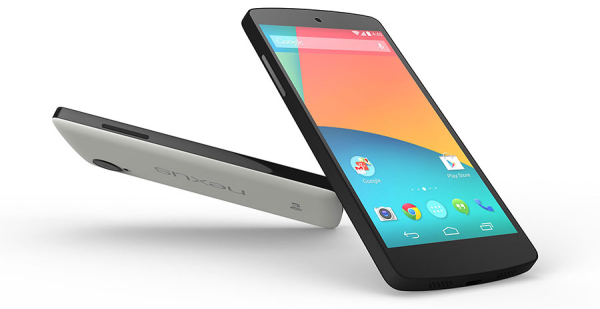Excellent Ars Technica article: Google’s iron grip on Android: Controlling open source by any means necessary.
I’m reading this the day after I ordered a Nexus 5. Not that it would have made much of a difference… but still a very interesting read. Besides, it made me change my mind on some aspects I already discussed in the past.
Android went from zero percent of the smartphone market to owning nearly 80 percent of it. Android has arguably won the smartphone wars, but “Android winning” and “Google winning” are not necessarily the same thing.
Since Android has become a mobile powerhouse though, Google has decided it needs more control over the public source code.
[…] that would mean you’d be moving Android’s SMS functionality to a closed source app. Once Google does make the switch, I predict that in one or two Android versions, you’ll see the SMS app disappear as a default app
[Play Services] is a huge weapon in the fight against Android forks. [It] is a closed source app owned by Google and licensed as part of the Google Apps package. Any feature you see move from “normal” Android to Google Play Services is also moving from open source to closed source. This app pulls off the neat trick of not only enticing users with exclusive, closed source features, but locking in third-party developers with Google’s proprietary APIs as well.
Google Cloud Messaging (GCM) is the easiest way to do push notifications on Android, but you’ll never see it on AOSP [Android Open Source Project].
There are now two methods to get location: the good, low power, closed source Google way, and the crappy, battery expensive, open source way.
To sum it up, Google is slowly abandoning pieces of the open source Android it continues to promote, while moving key, unreplaceable functionality into closed source proprietary apps and services. AOSP is becoming a sort of a mobile OS platform that’s pretty useless on its own (very much like the Linux kernel) but with only one widespread distribution: Google’s.
To me – and to the average consumer, and even developer – this is isn’t bad news, quite the opposite. It means Android is something worth investing in.
Bill Gates would be proud.
– Me, right now.
Google is indeed breaking its own promise of a “free” (as in “not owned by anyone in particular”) Android ecosystem. The point everyone seems to miss is, an ecosystem works if it has a stable common platform at its base. If Samsung part of the ecosystem tries to run away with the money, someone else has will try to stop it.
You might argue that Google had tight control on Android since the very beginning, and none of these arguments is new. That’s true. The Open Handset Alliance is sort of a joke and surely is not an “alliance”. Stronghold comes to mind. The problem is, Google is probably the only one in OHA that knows how to build awesome web software.
I want to state this once again. If it’s not Google, it would be Samsung. The difference is, Google “sells” web-based services, Samsung sells hardware, from oil tankers to smart watches (funny how things change in just 6 months!). The focus is much different – not necessarily worse or better, just different. Personally, for how I use my phone, the manufacturer is mostly irrelevant* and as long as a few key features are provided I only care about the software it runs. That means, Google gets to control the ecosystem.
If you think more about it, you “google” stuff on the web. You don’t “samsung” it. You use Gmail, and Google Maps. Google is everywhere in our daily routine (and yes, Google probably knows who you are, where you live, what you like, what is your sexual orientation… but that’s another story). Samsung isn’t, and will hardly every be. So, on the one hand, Samsung is trying to become a bit like Google, by building competing components, like their proprietary app store. On the other hand, Samsung is trying, with arguably good results, to disguise Google’s software as its own, or to trick the user to believe it’s always Samsung’s merit. Trust me, I’ve seen this with my very own eyes: most people do not know that a Galaxy S3 or S4 runs Android.
But, it’s an arms race, and Samsung cannot win it, simply because it’s not Google.

The next step for Google is getting rid of OEMs. Selling Nexus devices directly through Google Play, even in secondary markets like Italy, puts Google at a vantage point: distributing only and exactly what it thinks fits its (long-term) vision. So far they kept a very low profile, without pompous announcements – the Nexus 5 release was announced by a meager post on Google’s official blog – to avoid upsetting anyone, but we can clearly picture Google slowly kicking away all OEMs from the Android ecosystem, and becoming the sole “owner” of it all. It would make a lot of sense, under many aspects – compatibility, price, device fragmentation – but would remove the only differentiation between Android and iOS and Windows Phone: choice. You still get to pick your platform, but within those platforms choice and competition is, or will soon be, very limited. Again, nothing new, but it’s not quite what we all have in mind when we think about Android.
I don’t have any hard data, and I doubt Google will release any, but selling devices on Google Play seem to work pretty well. If I had ordered my Nexus 5 on October 31st, I’d have had to wait 1 week for delivery. I ordered it less than 24 hours later, on November 1st, and I got to wait 2 weeks, meaning stock is already running low. Of course this might actually mean there simply are very few items in stock. Should that be the case I’d doubt Google’s sanity, but I believe it’s rather the opposite: orders are flowing in fast**.
The last 3 Nexus devices, Nexus 4, Nexus 5, and 2013 Nexus 7, are built by LG and Asus. We still don’t get to see any Motorola Nexus device, although the recently released Moto X is unsurprisingly close to the Nexus vision: “stock” Android with very few customizations. I predict the next Nexus phone will be Motorola, and that will mark the end of the current Android ecosystem. Very much like Apple wanted to “go termonuclear” on Android, Google is going termonuclear on Samsung. Google is keeping a low profile, and slowly digging a tunnel under Samsung’s feet and removing key components from AOSP. Sooner or later, that tunnel will collapse.
* OK, that’s not entirely true, and that’s another reason why I don’t particularly like Samsung: they build crappy stuff.
** On a side note, white Nexus 5s are selling slower than black ones.
